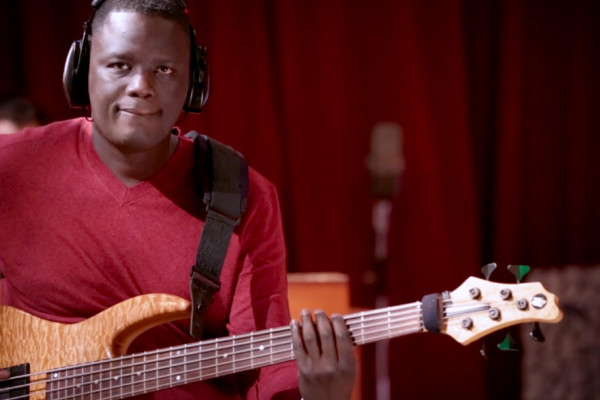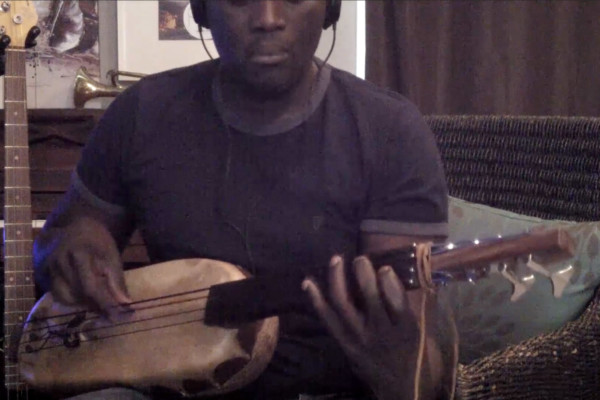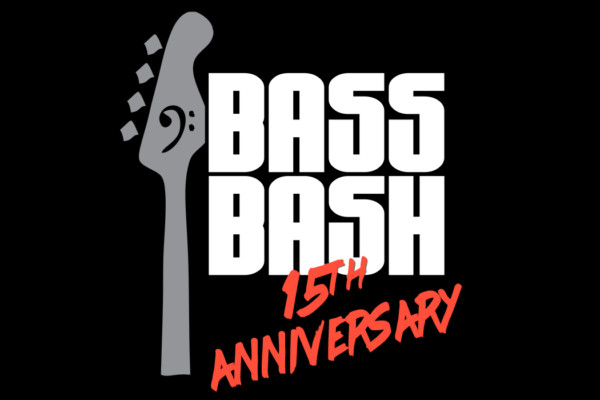Sons of Africa: An Interview with Cheikh Ndoye
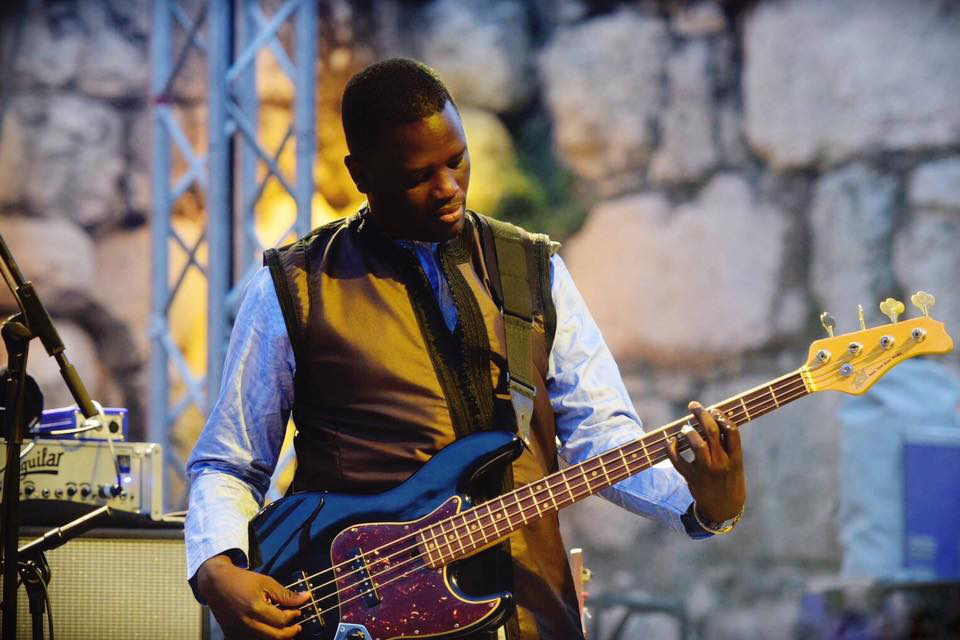
Cheikh Ndoye has just released his latest album as a leader, entitled Sons of Africa. The eight-song collection is an incredible blend of the Senegal-born bassist’s African roots and his love of jazz. Deep grooves and soulful melodies abound in seven original songs along with a fresh take on the Jaco Pastorius classic “Continuum.”
We caught up with Ndoye to get the scoop on the new album, his beginnings on the bass, and his use of the traditional bass ngoni.
How did you get your start on bass?
In a nutshell, the Weather Report album 8:30 got me into playing bass. I was really attracted to the playing of Jaco Pastorius and his harmonic development.
How do you feel your Senegalese roots affect the way you approach music?
During my childhood, I was fascinated by several programs that aired on TV. They used to show incredible musicians playing these traditional instruments such as the kora, xalam or balafon. Once I got introduced to the world of Jazz, I didn’t have much difficulty incorporating my African roots. I even exploit some of the techniques in my playing which brings back great memories of the sounds of growing up in Senegal.
Who are some West African musicians you think bassists should check out?
There are a few who come to mind immediately including the music of Salif Keita, Youssou Ndour, Richard Bona and Angelique Kidjo, and others… But obviously, there are lots more out there, not always well known.
What is the concept behind Sons of Africa?
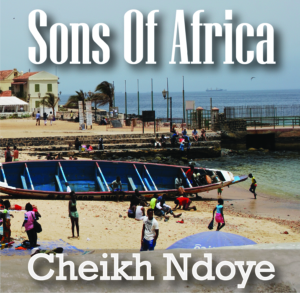 Sons of Africa is really all about celebrating African culture. In particular, I wanted to express the wealth of the African soundscape by carrying out the vibe of the music from different parts of this vast land. I also pay tribute to the children of Africa today, who are the future of the continent.
Sons of Africa is really all about celebrating African culture. In particular, I wanted to express the wealth of the African soundscape by carrying out the vibe of the music from different parts of this vast land. I also pay tribute to the children of Africa today, who are the future of the continent.
The album was recorded across the U.S. and Africa. Did that affect creating the album at all? Did you record in certain areas for certain reasons?
I was looking for a certain sound with this album and the only way I could make it happen was to record some of the songs with the musicians from back home. Malian Singer Diamy Sacko has this raw and deep voice. Her addition to the album made it very special. There are others like master percussionist Thio Mbaye from Senegal who contributed to the record. The African influence is not only felt directly by amazing African musicians but also by Africa-influenced musicians like the amazing Raul Pineda, a master musician, and drummer from Cuba. His feel, skills, and nuances are unique and the listener can definitely hear the Afro-Cuban style in his musicianship.
What is your songwriting process like?
I don’t have a particular process or formula when it comes writing. It all depends on what I hear and which instruments work best for the tunes. Bass is obviously my main instrument; more often than not, I start with a groove or bass line. Although I should say rhythm is an essential part of my writing which seems to be normal for a bass player. [laughs]
I love your take on “Continuum.” How did that come about?
I have always loved to play “Continuum.” It is such an important piece of music and especially for the bass community as a whole. I remember when I started to put the demo together, I sent it to (rest her soul) Ingrid Pastorius. She loved it. That was flattering. I should add that both Mike Stern (Guitar) and Frederic Yonnet (Harmonica) did some incredible solos on the tune.
You utilize a bass ngoni on the track “Jolie”. Can you explain the instrument a little bit and talk about its importance? Does it change your approach to bass lines?
The Ngoni instrument itself has been around Africa for centuries. Though typically a small instrument, it has such a big sound and a big place in the history of West African music.
At the beginning, when I started learning it, I was a bit frustrated as it is not like a regular bass. [laughs] The neck is almost like holding a thick broom. Within the years of playing it, I made some significant modifications with the help of David Segal — owner of New York Bass Works, the basses I play, incredible instruments. So I have been touring with the ngoni and it sounds really nice. Very close in sound to the upright bass.
You have a great cast of musicians on the album. How was it to work with Mike Stern, Bob Franceschini, and Raul Pineda?
The musicians you just named are not only incredible, world-class but most importantly they are great people and friends. Being around them in the studio is so much fun. They really get things done in a way you can’t believe. Whatever I have written, they added their own approach to it. Mike played on “Continuum” and “Below Level”. Bob Franceshini is on three tunes. Raul Pineda played drums and percussions on all of the tracks. The Armenian pianist Arshak Sirunyan is also a huge part of this project.
Any advice for up and coming bassists?
Be open and listen to as many styles of music as possible. Learn and know as many rhythms as possible.

